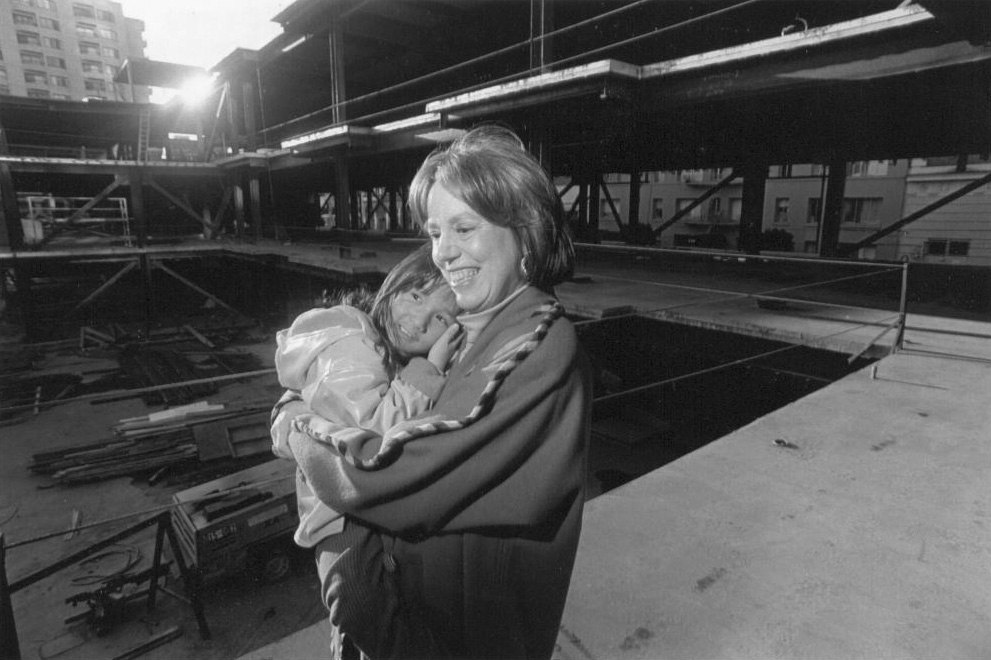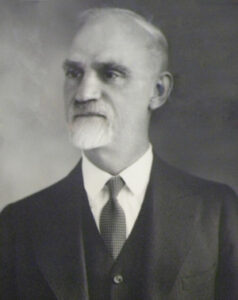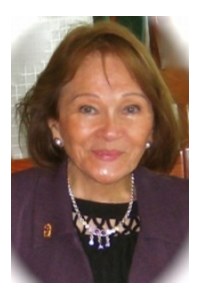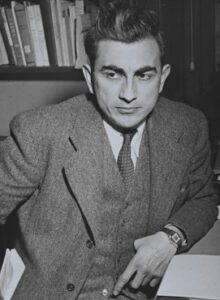By Lauren Sheehan-Clark
The Oral History Center’s Advocacy and Philanthropy project tells the history of our world from the perspective of those who went above and beyond to help shape it. From local Bay Area volunteers to international activists, these interviews serve as a guide through history, highlighting some of the prominent social concerns and reform movements of the last century.
For a look into the Progressive Era of the early twentieth century, you can read interviews from UC Berkeley alumni Adeline Toye Cox and Emma McCaughlin, who focused their volunteer efforts on fledgling organizations such as Planned Parenthood and the League of Women Voters. Or, if you’re interested in the 1940s and 1950s, several of the interviewees in this project discuss their involvement with postwar activism, including Edith Simon Coliver, who served as an interpreter during the Nuremberg trials, and Florette Pomeroy, who worked with the United Nations to repatriate lost children.
The project only continues to grow from there, with countless interviews on the social concerns of the latter half of the twentieth century. Carol Rhodes Sibly, a Berkeley community leader, touches on the movement to integrate schools in the East Bay, while Sally Lilienthal recounts her long-term commitment to preventing the proliferation of nuclear weapons through her organization, the Ploughshares Fund.
If that’s not enough, take a look at some of the highlights from this rich collection of interviews.

Newel Perry: The California Council for the Blind

Newel Perry was a leading figure in disability activism in the early twentieth century, establishing the influential California Council of the Blind in 1934. Blind himself from the age of eight, Dr. Perry advocated for the self-sufficiency of individuals who were blind and visually impaired, and sought to increase their economic opportunities, particularly for students who wished to attend university. Throughout the mid-twentieth century, the Council was credited for a wealth of progressive legislation for Californians with disabilities, in addition to inspiring the larger National Federation of the Blind, established in 1940.
Elinor Heller: A Volunteer in Politics, in Higher Education, and on Governing Boards
Hailing from San Francisco, Elinor Heller was a former committeewoman for California in the Democratic National Committee (1948–1952) and chairwoman of the University of California Board of Regents. In her work with the Committee, she witnessed the appointment of Harry Truman as vice president and his eventual rise to the presidency, while her time with the Regents overlapped with the influential free speech movement led by Berkeley students. In addition to her volunteer work with the League of Women Voters and other organizations, this interview covers Heller’s thoughts on major political campaigns of the mid-century and university-student relationships.
Isabel Wong-Vargas: Commerce, Industry, and Labor, Family & Personal Philanthropy in Peru, China and the United States

A jack of all trades, Isabel Wong-Vargas was an entrepreneur, restaurant developer, and philanthropist who founded the highly successful restaurant, La Caleta, in Peru. Wong-Vargas spent much of her life in China and Peru before settling in the Bay Area in 1966, where she was named San Francisco’s honorary consul for Peru. In this expansive interview, Wong-Vargas discusses her memories of World War II and the Japanese occupation of Hong Kong, gender roles and divorce in pre-revolution China, Peruvian business practices, and her later years in the Bay Area.
Midge Wilson: An Oral History
Midge Wilson was an activist and community leader who founded the Bay Area Women’s and Children’s Center in the Tenderloin district of San Francisco in the 1980s. A longtime resident of the Tenderloin, Wilson’s dedication to the community was extensive: She helped to establish clothing drives, youth programs, and recreation centers, as well as the neighborhood’s first public school, the Tenderloin Community School. In this interview, Wilson discusses her extensive work with the Bay Area Women’s and Children’s Center, fundraising strategies, youth programs and education, and changes to the Tenderloin community in the 1980s and beyond.
Ernesto Galarza: The Burning Light

Another household name, Ernesto Galarza was an influential labor organizer whose activism in the late 1940s laid the groundwork for the Chicano movement of the 1960s. Born in Jalcocotán, Mexico and immigrating to the United States at a young age, he began organizing strikes against the DiGiorgio Corporation in 1948 and worked closely with the American Federation of Labor’s National Agricultural Workers Union. In this collection of speeches and discussions, Galarza discusses data-driven methods of community activism, as well as his years as a professor and the challenges of bilingual education.
Find these and all the Oral History Center’s interviews from the search feature on our home page. Search by name, keyword, and several other criteria. Find projects, including the Advocacy and Philanthropy —Individual Interviews project, through the Projects tab on our home page.
All in all, the narrators in our Advocacy and Philanthropy project had a profound impact on the communities around them, whether big or small, local or global. So if you’re looking for a bit of advice or mentorship from celebrated leaders, look no further: Get reading, and get inspired.
Lauren Sheehan-Clark, a recent graduate of UC Berkeley, studied history and English, and was an editorial assistant at the Oral History Center.
Further Reading and Resources from The Bancroft Library
Blind Educator: The Story of Newel Lewis Perry, by Thomas Buckingham. BANC; xF860.P42.B8
Farm Workers and Agri-business in California, by Ernesto Galarza. Bancroft ; F862.2G14
Interviews on the University of California loyalty oath controversy. Bancroft ; Phonotape 3799 C:1-9. Interviews conducted for David P. Gardner’s thesis, The University of California loyalty oath controversy.
See also “I take this obligation freely:” Recalling UC Berkeley’s loyalty oath controversy, by Shannon White with research by Adam Hagen.
Newel Perry papers. BANC MSS 67/33 c. Presidential campaign, 1940. Democratic Party. Bancroft Folio ; f JK2256 1940d. Party platform, printed copies of speeches, pamphlets, broadsides, clippings and dodgers used in the 1940 presidential campaign of the Democratic Party.
About the Oral History Center
The Oral History Center of The Bancroft Library preserves voices of people from all walks of life, with varying political perspectives, national origins, and ethnic backgrounds. We are committed to open access and our oral histories and interpretive materials are available online at no cost to scholars and the public. You can find our oral histories from the search feature on our home page. Search by name, keyword, and several other criteria. Sign up for our monthly newsletter featuring think pieces, new releases, podcasts, Q&As, and everything oral history. Access the most recent articles from our home page or go straight to our blog home.